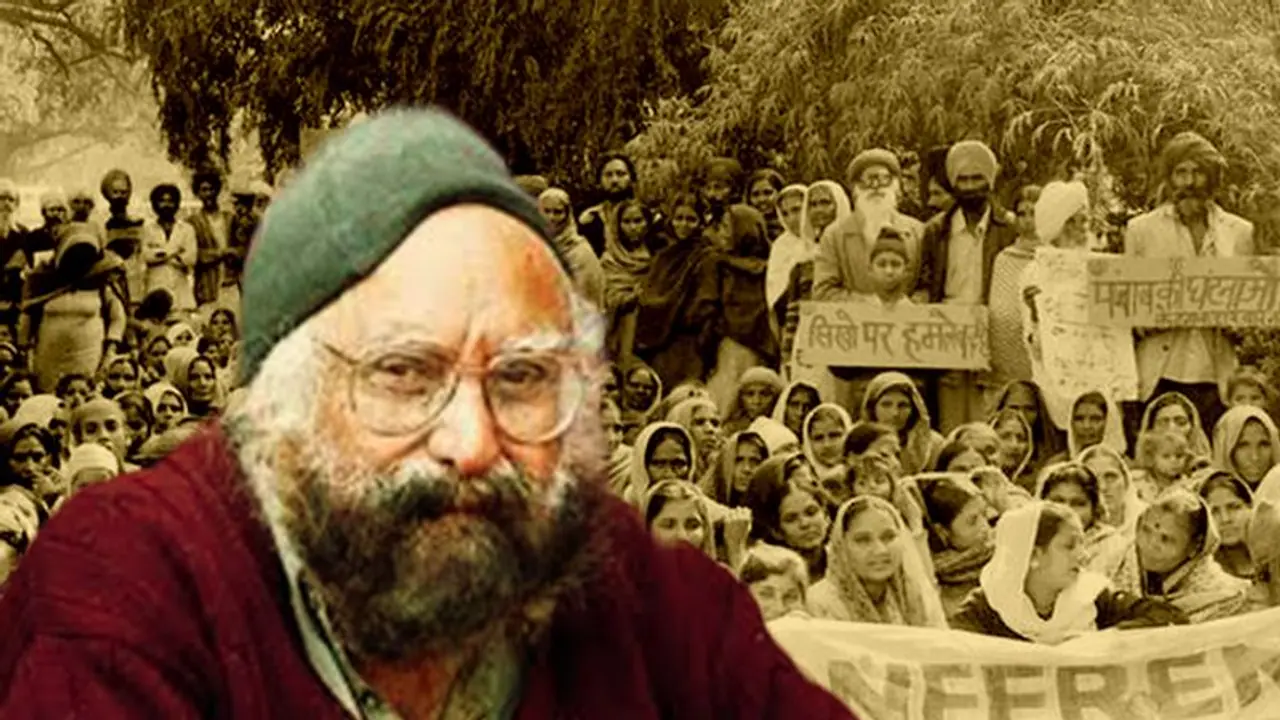Khushwant Singh wrote extensively about the 1984 massacre in his works of literature that focused on these events, including My Bleeding Punjab and Delhi: A Novel
Khushwant Singh, celebrated writer and journalist, was bestowed with the Padma Bhushan in 1974, but he returned the award in protest against Operation Blue Star. The storming of the Golden Temple on June 5, 1984, by the Indian Army prompted Singh to hand back the prestigious award.
Singh’s literary depictions of the 1984 massacre
Singh wrote extensively about the 1984 massacre in his works of literature that focused on these events, including My Bleeding Punjab and Delhi: A Novel.
In Delhi: A Novel, Singh wrote:
“A deep depression enters my soul. I ask myself over and over again, am I Sikh? I am certainly not the Bhindranwale brand nor the gurdwara Bhai brand….I cannot remember when I last went to a gurdwara. I have not prayed in fifty years….On the morning of the 6th of June I go to the gurdwara behind my apartment. There is quite a crowd. Many are in tears. Their tears bring tears to my eyes. I am one of them.”
“The assault escalates, and the crowd decides to burn the man with his holy book. As flames engulf the body, the crowd declares “Indira Gandhi amar rahey (Indira Gandhi is immortal).”
Observing a riot, he wrote in Delhi: A Novel:
The mob is composed of about fifty young boys armed with iron rods. Some have canisters of petrol in their hands. They surround the gurdwara and storm in. They drag out the Bhai and beat him up with their fists and rods. He cries at the top of his voice: “Bachao! Bachao! Police!” They shout back. “Bhindranwale key bacchey (son of Bhindranwale)! Ask your father to save you now.” They bring out the Granth, its canopy, carpets and durries, heap them up in a pile and sprinkle petrol on it. One puts a match to it and the heap bursts into flame. The Bhai’s hair is scattered over his bloodied face but he pleads, “Do what you like to me but don’t dishonor the holy book. Rab da vaasta (for God’s sake).”
Need healing touch
In My Bleeding Punjab, Singh wrote: “One lesson to be leamt from the storming of the Golden Temple is that it was the worst way of handling an explosive situation. Another is that political, economic and social problems are not solved by superior gunpower but by persuasion, by give-and-take. The need of the hour is to provide a healing touch. This can best be done by acts of penance by people in power.”
Police mute spectators
While deposing before the Nanavati Commission, probing the anti-Sikh riots of 1984 after the assassination of then prime minister, Indira Gandhi by her two Sikh bodyguards, Singh in 2001 had said that the police were mute spectators when the riots were going on.
"On October 31, 1984, I came out of my house, near the Ambassador Hotel and from the gate near the road, I saw a mob burning a taxi, belonging to a Sikh. From a distance of 10 yards, I saw around 30 policemen, an inspector, who was armed and a sub-inspector, standing across the road. The policemen did nothing to prevent the mob from burning the taxi," Singh told the commission.
Like a Jew in Nazi Germany
Singh said that he felt like a fugitive in his own country.
"I felt like a Jew must have in Nazi Germany. I was a refugee in my own homeland because I was a Sikh,” Singh wrote in Oh, That Other Hindu Riot of Passage.
Not riot, but pogrom
Singh refused to call the 1984 riots a ‘Hindu-Sikh’ riot because according to him, it was a one-sided riot. There was no retaliation from the Sikhs, he had said. “It was a pogrom,” he added.
